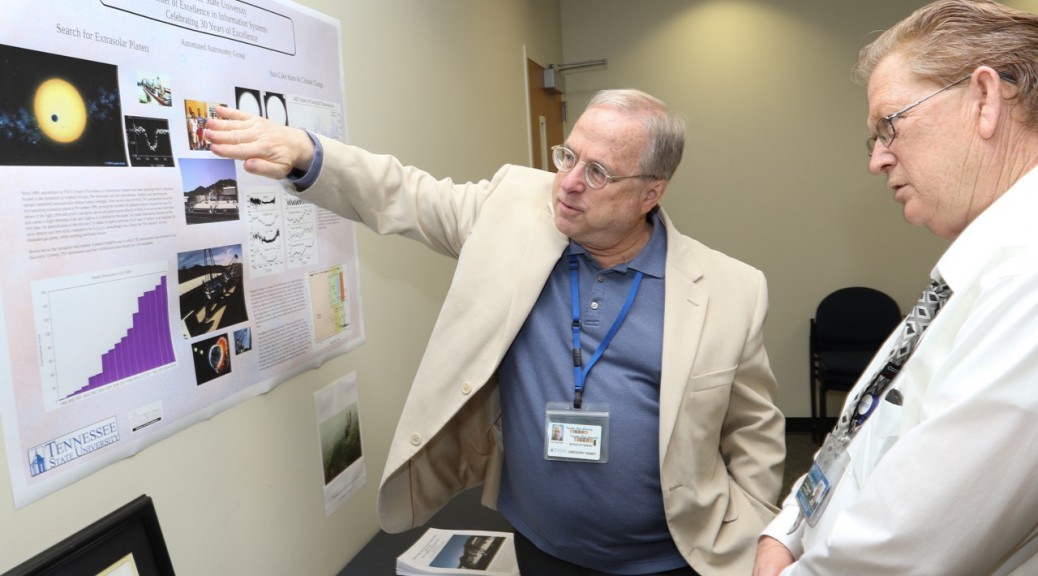
NASHVILLE, Tenn. (TSU News Service) – Tennessee State University’s Dr. Gregory Henry is part of a team of astronomers who have discovered an extrasolar planet scientists say has the most eccentric orbit ever seen.
The new planet is referred to as HD 20782 b and is about 117 light-years from Earth. It appears “elliptical or oblong” as it orbits around its star, astronomers say, which is unlike other planets in the solar system that have nearly circular orbits.
“The planet moves in a nearly flattened ellipse, traveling slowly far from its star and then making a fast and furious slingshot around the star at its closest approach,” Henry said. “At the furthest point in its orbit, the planet is separated from its star by 2.5 times the distance between the sun and Earth.”
At its closest approach, scientists say the new plant ventures as close as 6 percent of the Earth-sun distance, which is much closer than Mercury orbits the sun.
In congratulating Henry and his colleagues, TSU’s director of the Center of Excellence in Information Systems Engineering Management referred to Henry as “the first piece of TSU’s astronomy team.”
“Dr. Henry led an effort to establish the world’s first fully robotic observatory in collaboration with Fairborn Observatory in Southern Arizona,” said Dr. Matthew Muterspaugh, who is also professor of Physics and Astronomy at TSU. “Several of these telescopes were used to monitor the new planet’s host star to characterize the star’s properties and eliminate potential sources of false discovery.”
The team of astronomers, led by Steven Kane of San Francisco State University, say extrasolar planets like HD 20782 b pose “a wealth of questions” for astronomers.
“When we see a planet like this in an eccentric orbit, it can be really hard to explain how it got that way,” Kane said. “It’s kind of like looking at a murder scene, examining blood spatter patterns on the walls. You know something bad has happened, but you need to figure out what caused it.”
This new planetary discovery is just one of many involving TSU in the past.
For more than 25 years, Tennessee State University astronomers have been developing and operating a fleet of robotic telescopes in the mountains of southern Arizona.
In 1999, one of TSU’s robotic telescopes discovered the first transiting (eclipsing) exoplanet, providing the final evidence needed to prove the existence of other planetary systems.
“Our robotic telescopes have played a part in the discovery of over 150 extrasolar planets and planetary systems,” said Henry.
Department of Media Relations
Tennessee State University
3500 John Merritt Boulevard
Nashville, Tennessee 37209
615.963.5331
About Tennessee State University
With more than 9,000 students, Tennessee State University is Nashville’s only public university, and is a comprehensive, urban, co-educational, land-grant university offering 38 undergraduate, 22 graduate and seven doctoral programs. TSU has earned a top 20 ranking for Historically Black Colleges and Universities according to U.S. News and World Report, and rated as one of the top universities in the country by Washington Monthly for social mobility, research and community service. Founded in 1912, Tennessee State University celebrated 100 years in Nashville during 2012. Visit the University online at tnstate.edu.
